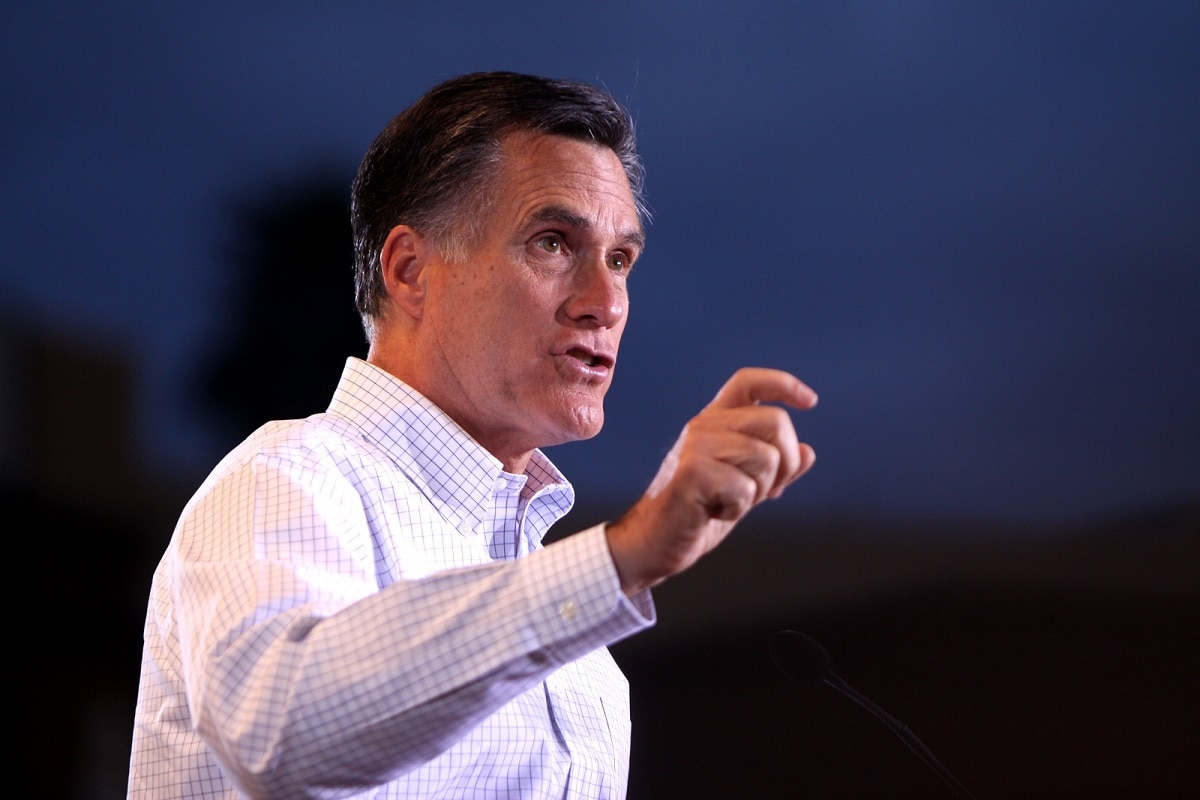Ten years ago, Utah Sen. Mitt Romney was the standard bearer for the Republican Party. Romney headed the GOP ticket during the 2012 presidential election, hoping to unseat incumbent President Barack Obama. Romney failed, of course, but he remained in the public view. Gradually, he has deviated from the norms of his party. Today, Romney is something of a maverick in the GOP,” and his future remains unclear.
Romney has one of the most impressive resumes in the entire Senate. “He amassed a fortune as the co-found of Bain Capital before becoming elected governor of Massachusetts, where he enacted sweeping health care reform that later became the template for the Affordable Care Act,” The Hill reported. “He ran a credible campaign for president in 2008 and won the GOP nomination for president in 2012.”
The nature of Romney’s relatively new maverick status stems from a number of high-profile votes where he bucked the GOP consensus. Two of those votes were to impeach Donald Trump. More recently, Romney cut against his own party when he voted to confirm Ketanji Brown Jackson to the Supreme Court. Only two other Republicans – Senators Susan Collins and Lisa Murkowski – supported KBJ.
Despite rumors – and despite “RINO” smears – Romney is still a member of the GOP. But “Mitt Romney Republican” is now a common slander, cropping up in GOP primaries as shorthand for someone who is not sufficiently conservative. Indeed, “Mitt Romney Republican” is the new “RINO.”
Romney surely recognizes his re-election prospects have dimmed. In conversations with The Hill, Romney said he isn’t committed to a re-election campaign. “I’m going to cross that bridge down the road,” he told the publication. “I haven’t given a lot of attention yet.” In Romney’s Utah, denouncing Trump isn’t necessarily a death sentence for a GOP politician – not like in Wyoming, for example, where Liz Cheney is on the verge of losing a primary after denouncing Trump. Still, Trump did carry Utah, beating Joe Biden by 20 points in 2020 – and, in Utah, the “Mitt Romney Republican” term is appearing regularly. “Nowhere are references to Romney Republicanism as common as they are in Utah,” Sam Metz reported in U.S. News. “Despite his popularity with many residents here, candidates are repeatedly deploying “Mitt Romney Republican” as a campaign trail attack.”
“There are two different wings in the Republican Party,” Chris Herrod, a Utah congressional candidate, told Metz. “If you’re more aligned with Mitt Romney and Spencer Cox, then I’m probably not your guy.”
Andrew Badger is another Republican running for congress in Utah. Badger “frames his primary campaign as a “tug of war” between two competing factions within the Republican party,” Metz reported, “he describes one as the moderate, compromise-friendly wing embodied by Romney and the other as the conservative wing embodied by Utah Sen. Mike Lee, a frequent guest of FOX News who is often the Senate’s lone “no” vote.”
Is going after Romney in a state he won so handily in 2018, a risky strategy? Potentially. “Both Badger and Herrod acknowledge attacking Romney may turn off some voters,” Metz reported. Romney, one of the world’s most prominent Mormons, remains popular in Utah. Aside from his Mormon roots, Romney also salvaged the 2002 Salt Lake City Olympic Games, helping Utah stand briefly on the international stage. And of course, Romney was once among the most prominent Republicans in the country. More than 60 million people once voted Romney for president – good enough to win 47% of the popular vote, 24 states, and 206 electoral votes, although this was not enough to win the election.
Things have changed since 2012, of course, as more recent campaigns reflect. “Badger in his campaign has focused on simmering outrage stemming from the 2020 election and anger over coronavirus mandates and how race, gender and sexuality are taught in K-12 schools,” Metz reported. While Romney has lost traction with Republicans by standing up to Trump, he has endeared himself to Democrats and independents. Romney is “actually more popular with Democrats and independents than he is with Republicans right now. So getting past the Republican primary would be a tough one,” Richard Davis, a professor at Brigham Young University, told The Hill.
“Davis said Romney could run and win as an independent or as a centrist candidate for the United Utah Party, which formed in 2017,” The Hill reported. Remarkable, given that just five years ago, Senate Minority Leader Mitch McConnell personally recruited Romney. Stay tuned to see whether Romney formally leaves the Republican party.
Harrison Kass is the Senior Editor at 19FortyFive. An attorney, pilot, guitarist, and minor pro hockey player, he joined the US Air Force as a Pilot Trainee but was medically discharged. Harrison holds a BA from Lake Forest College, a JD from the University of Oregon, and an MA from New York University. He lives in Oregon and listens to Dokken. Follow him on Twitter @harrison_kass.

